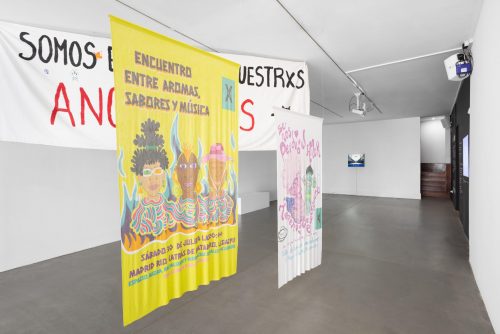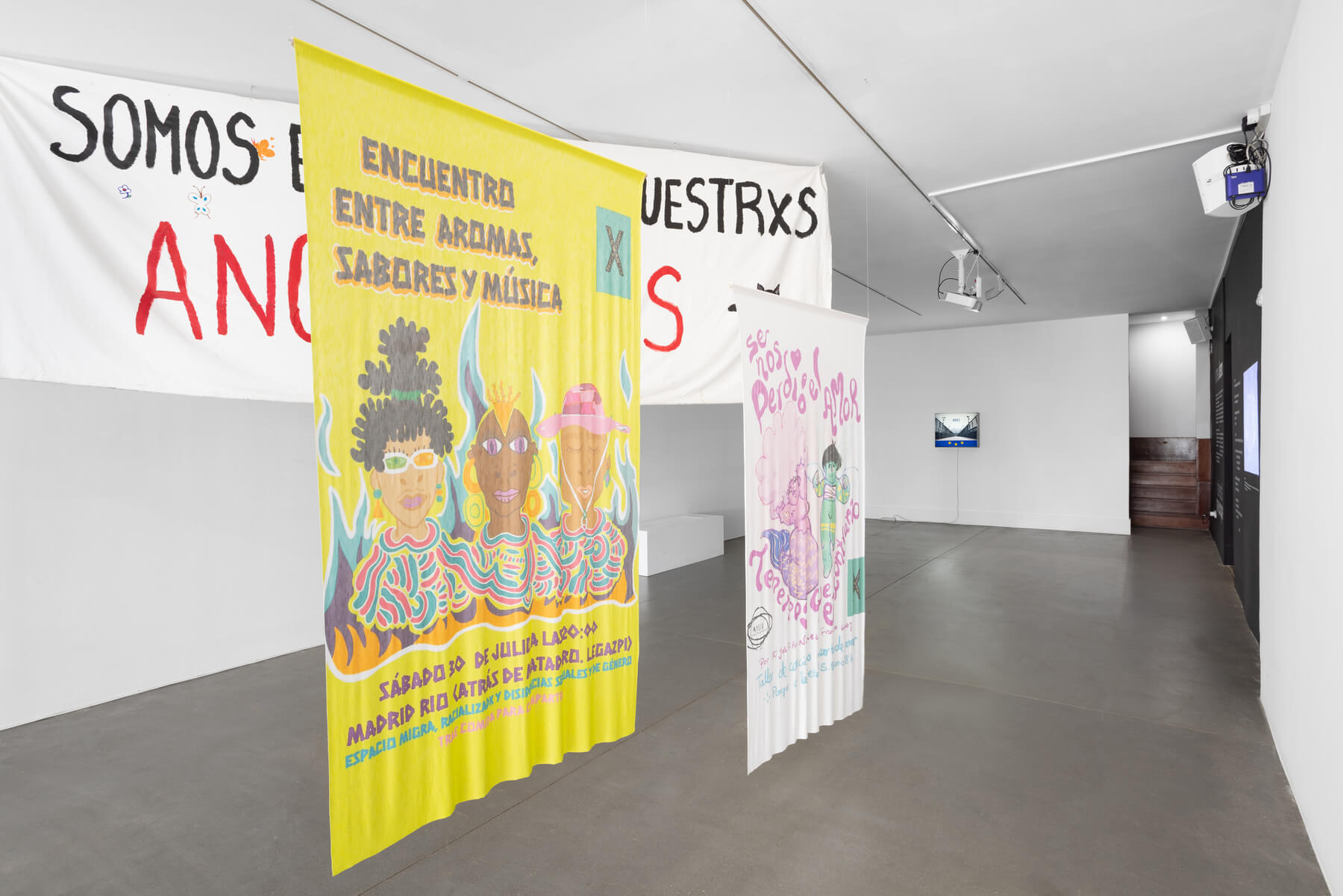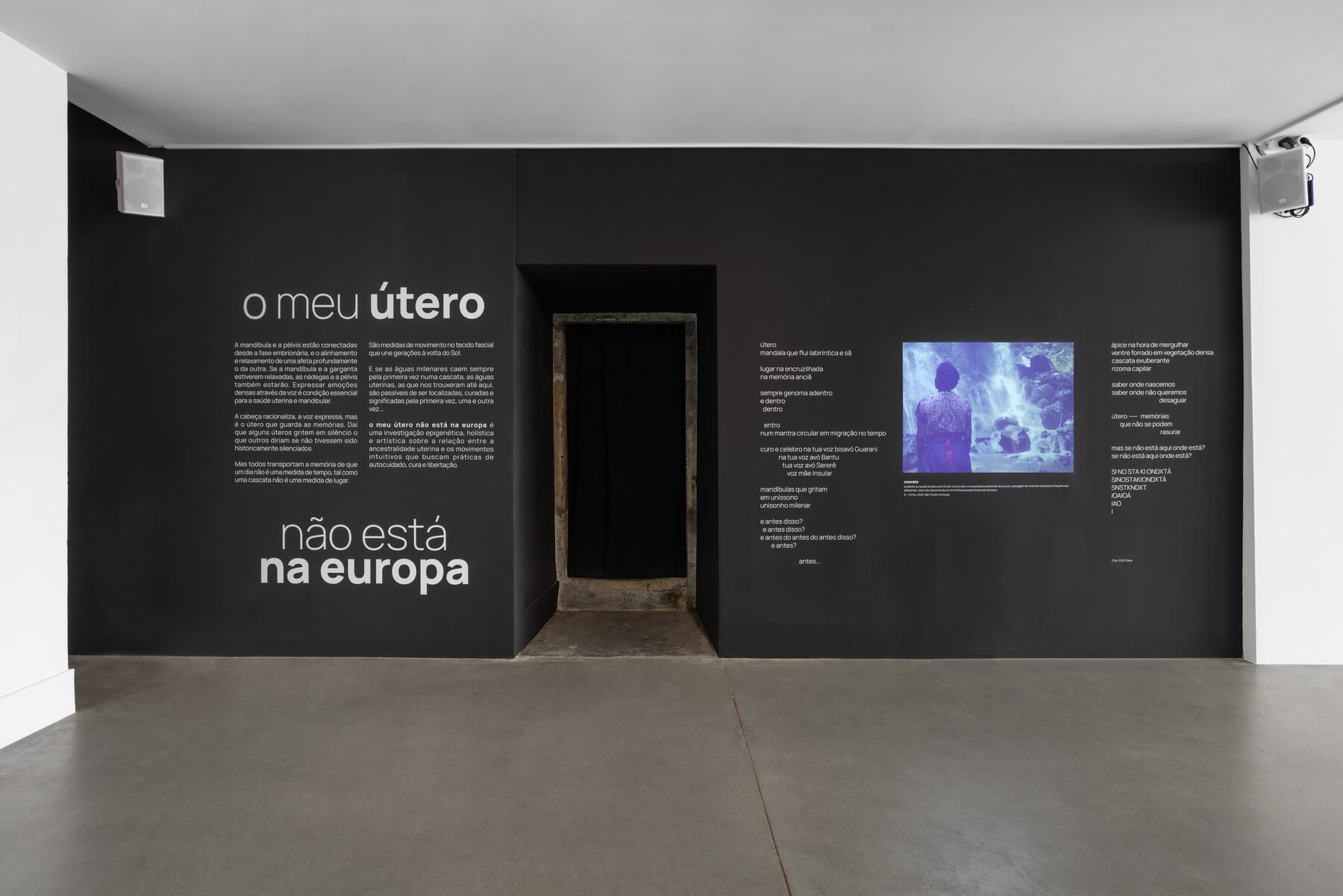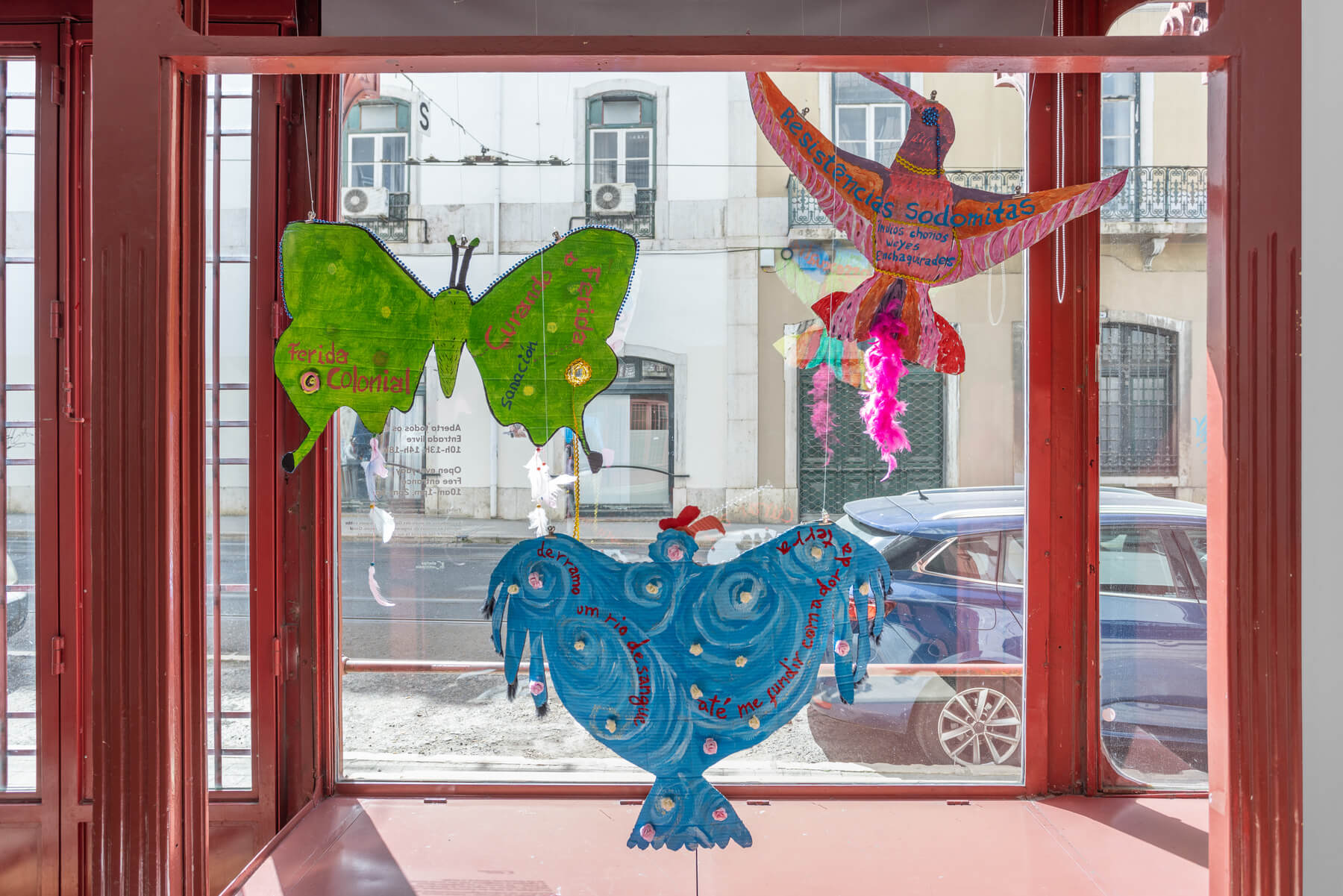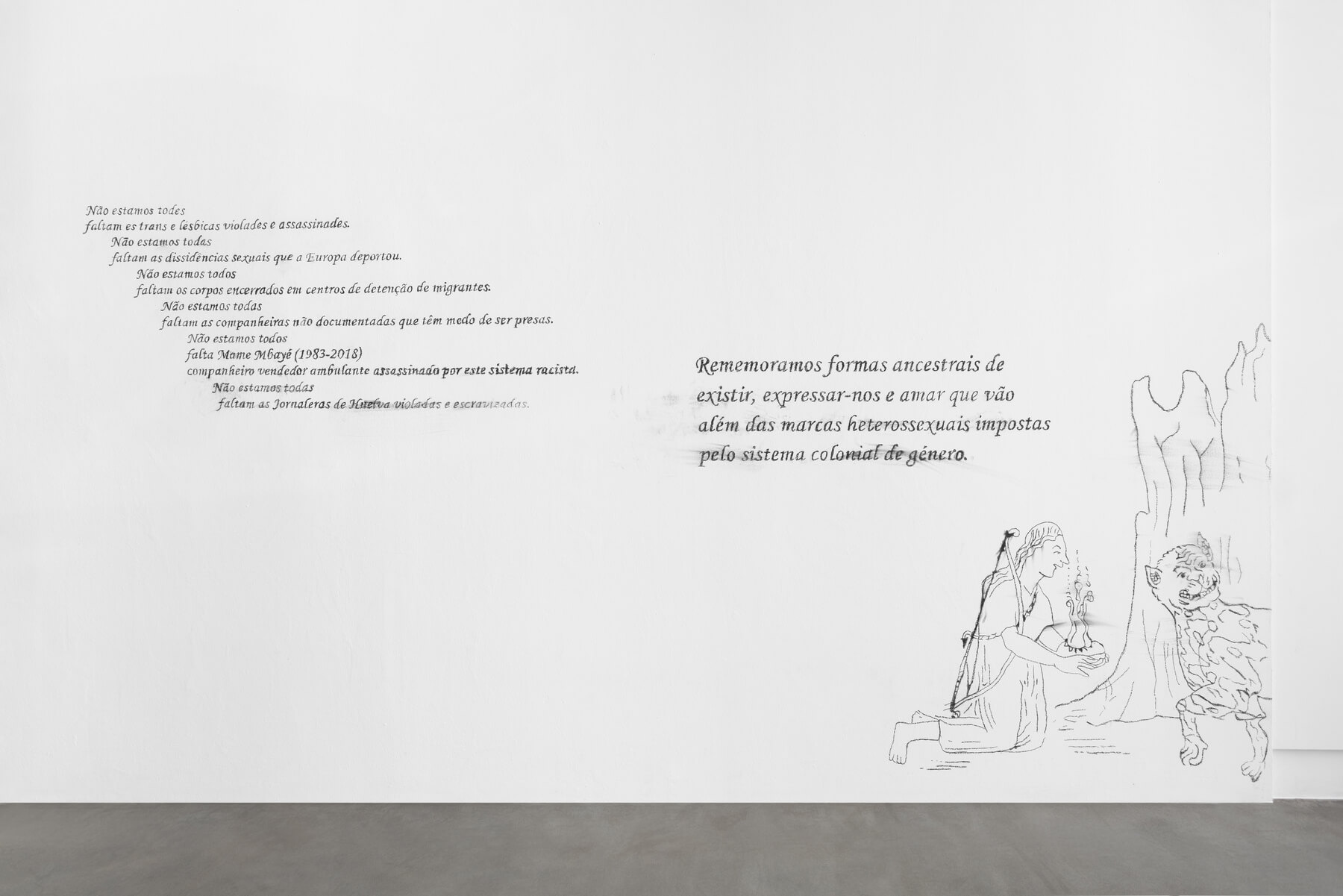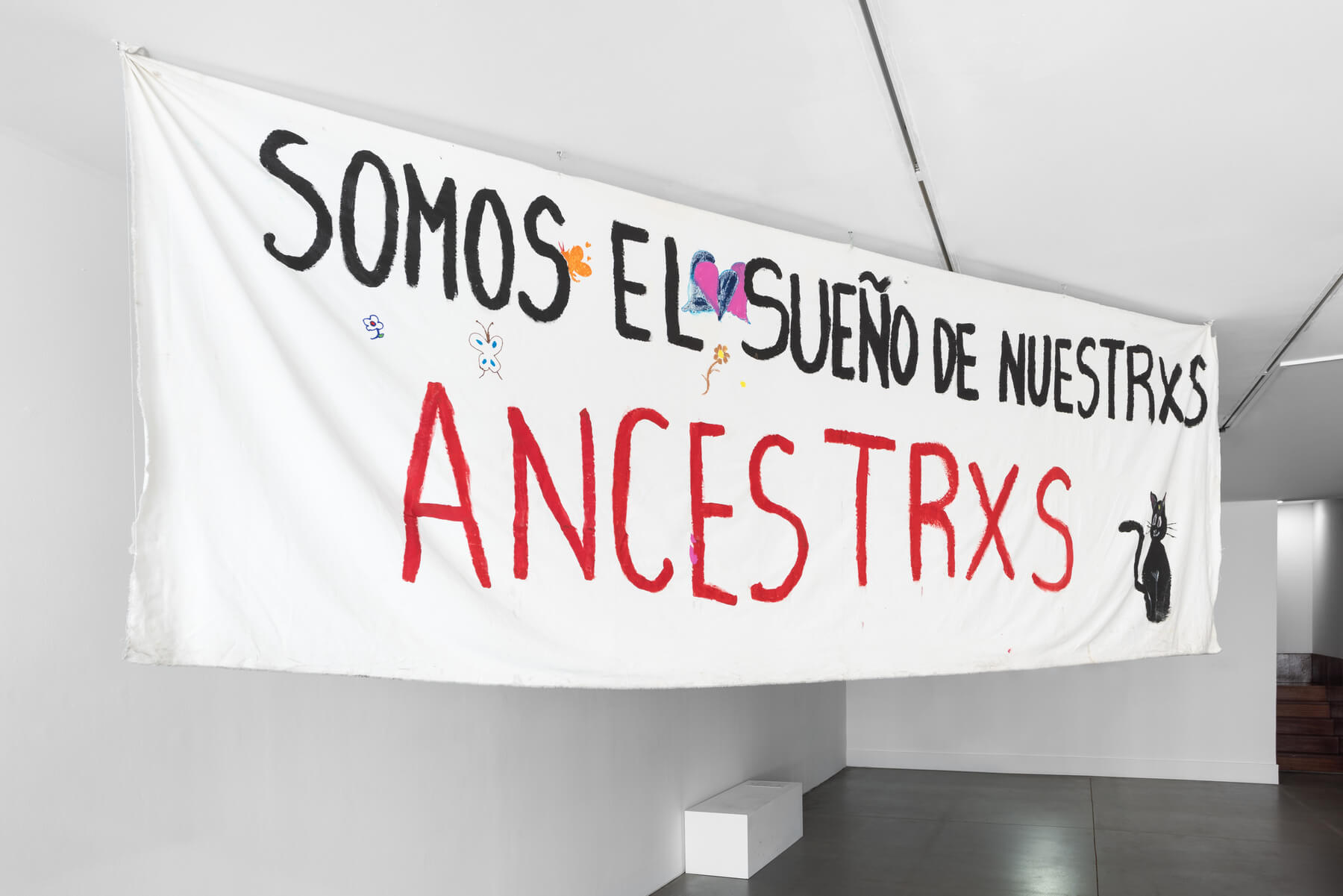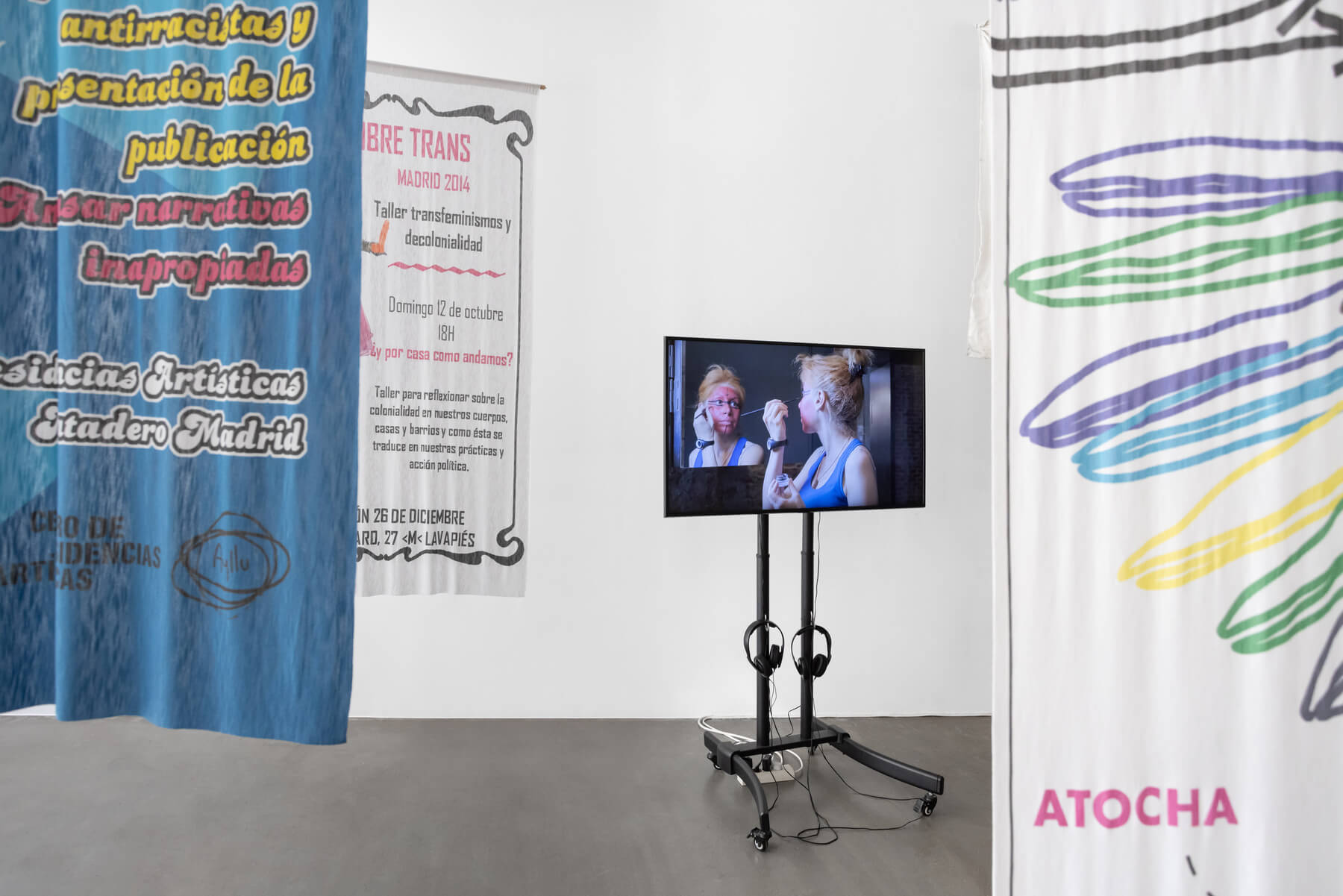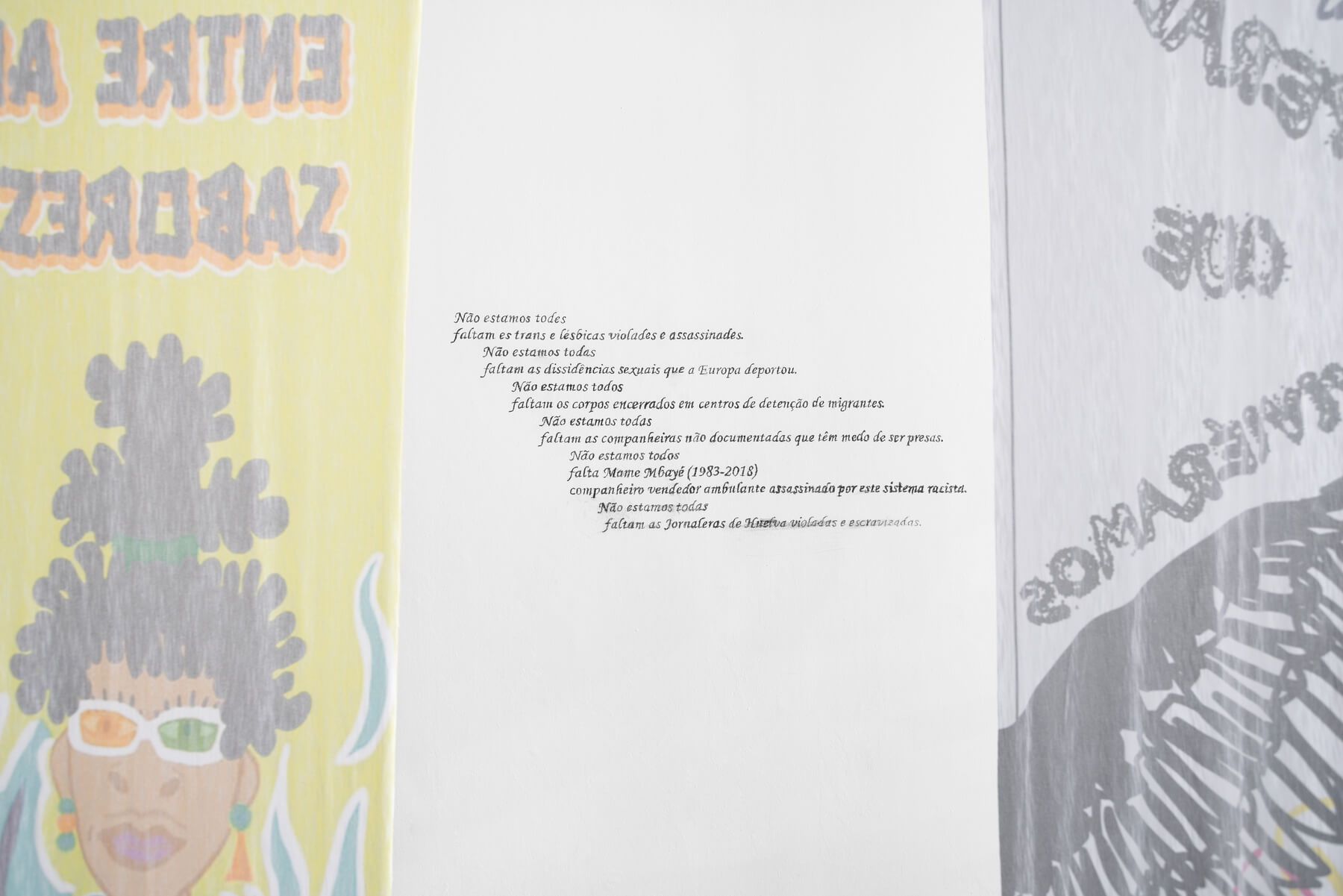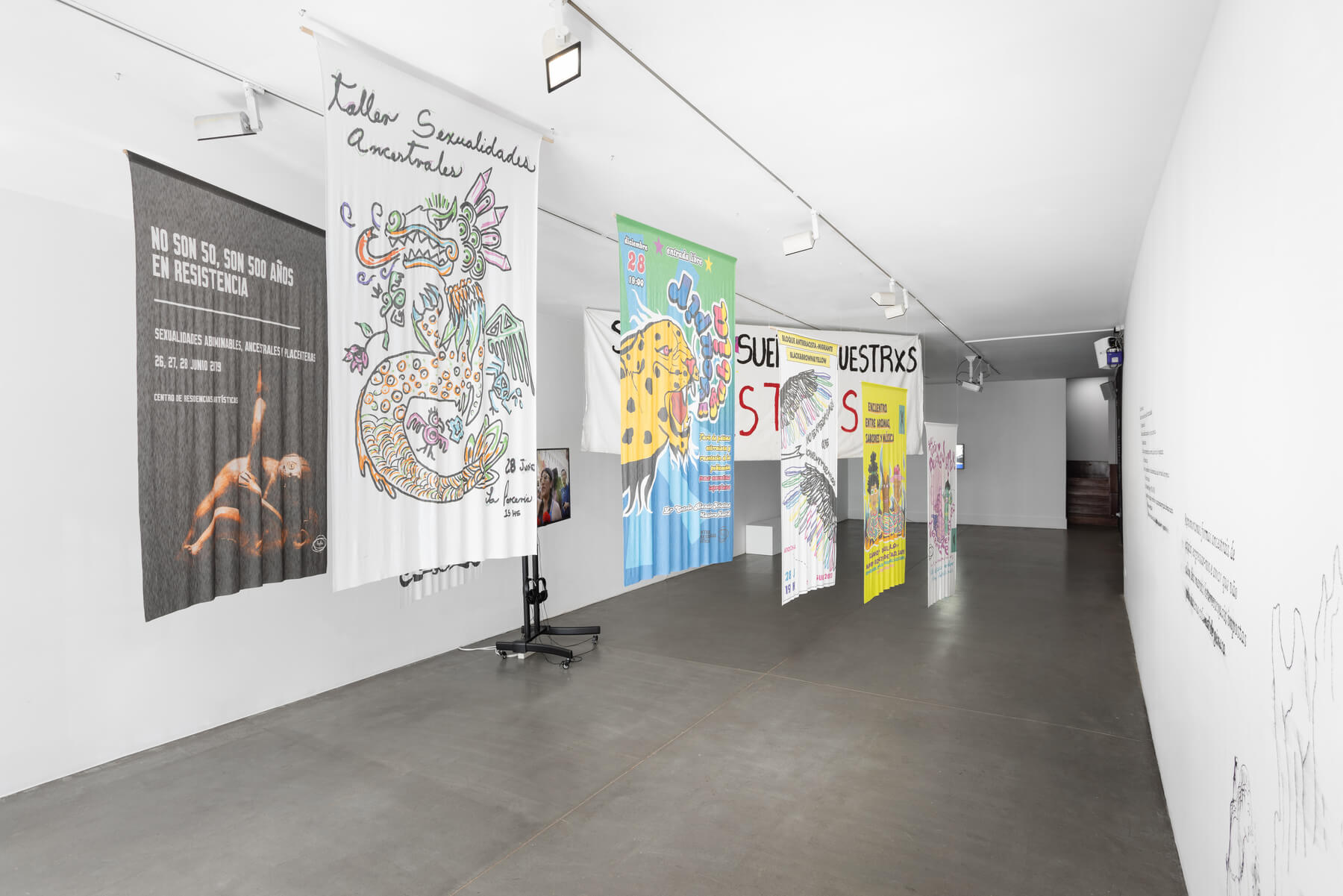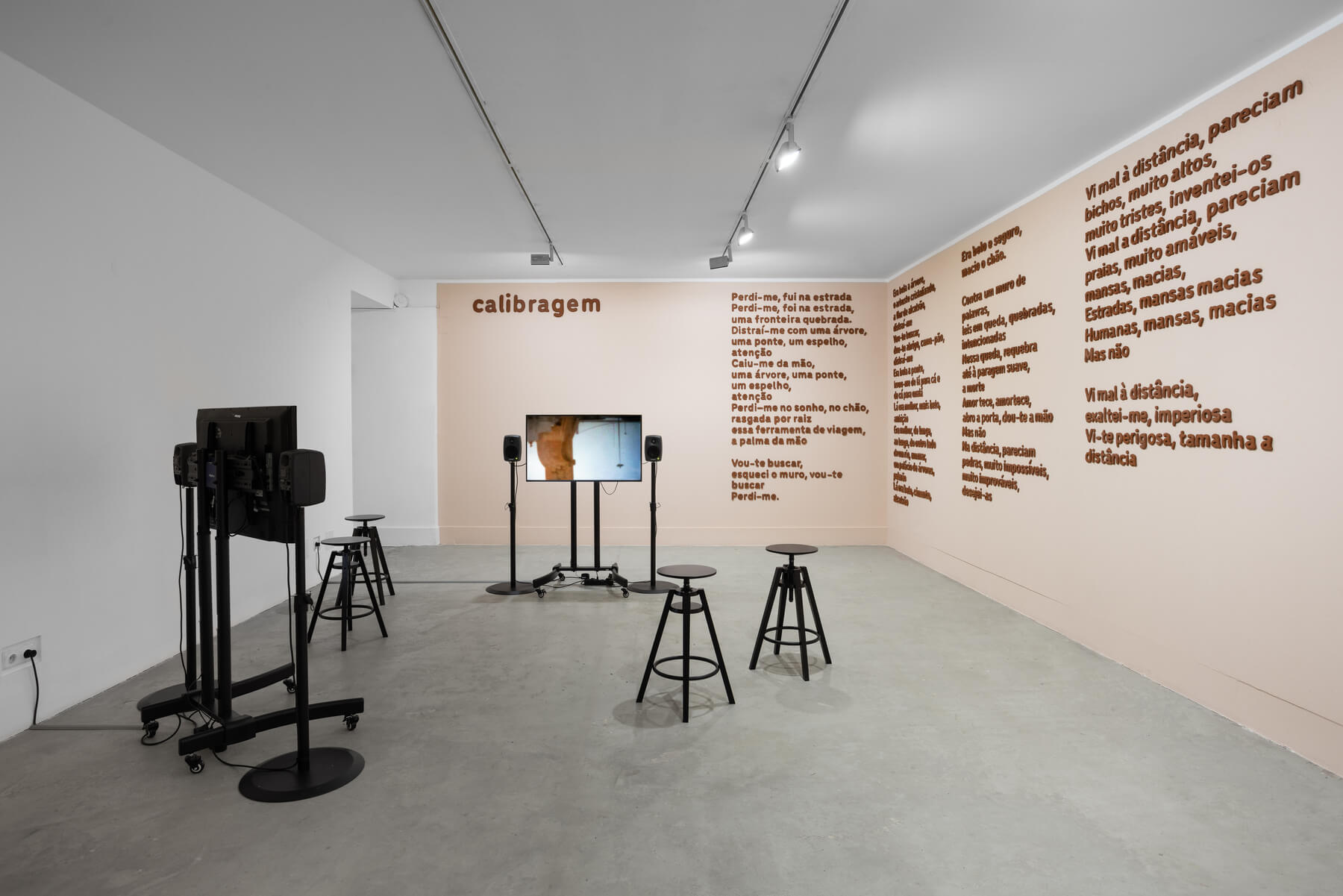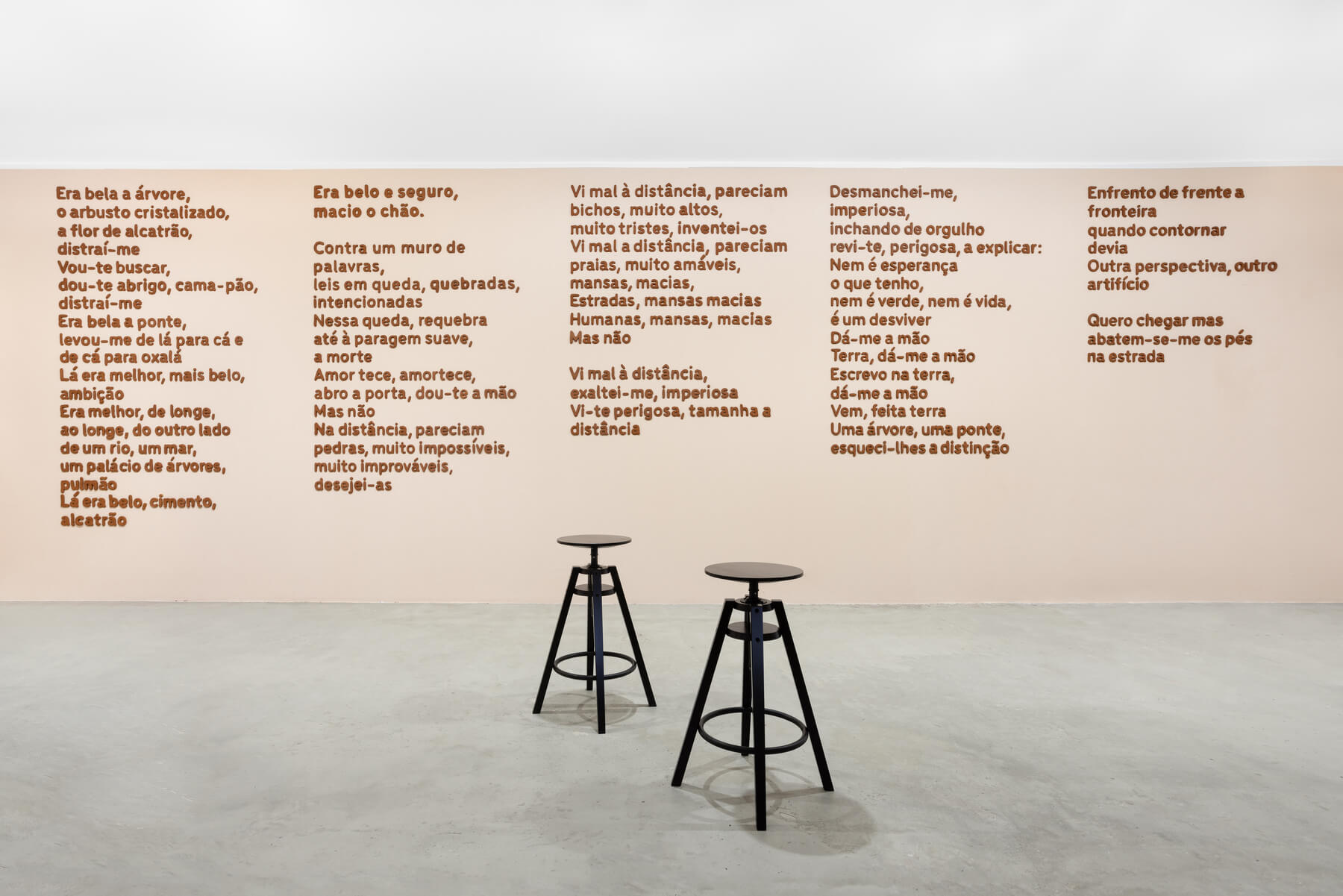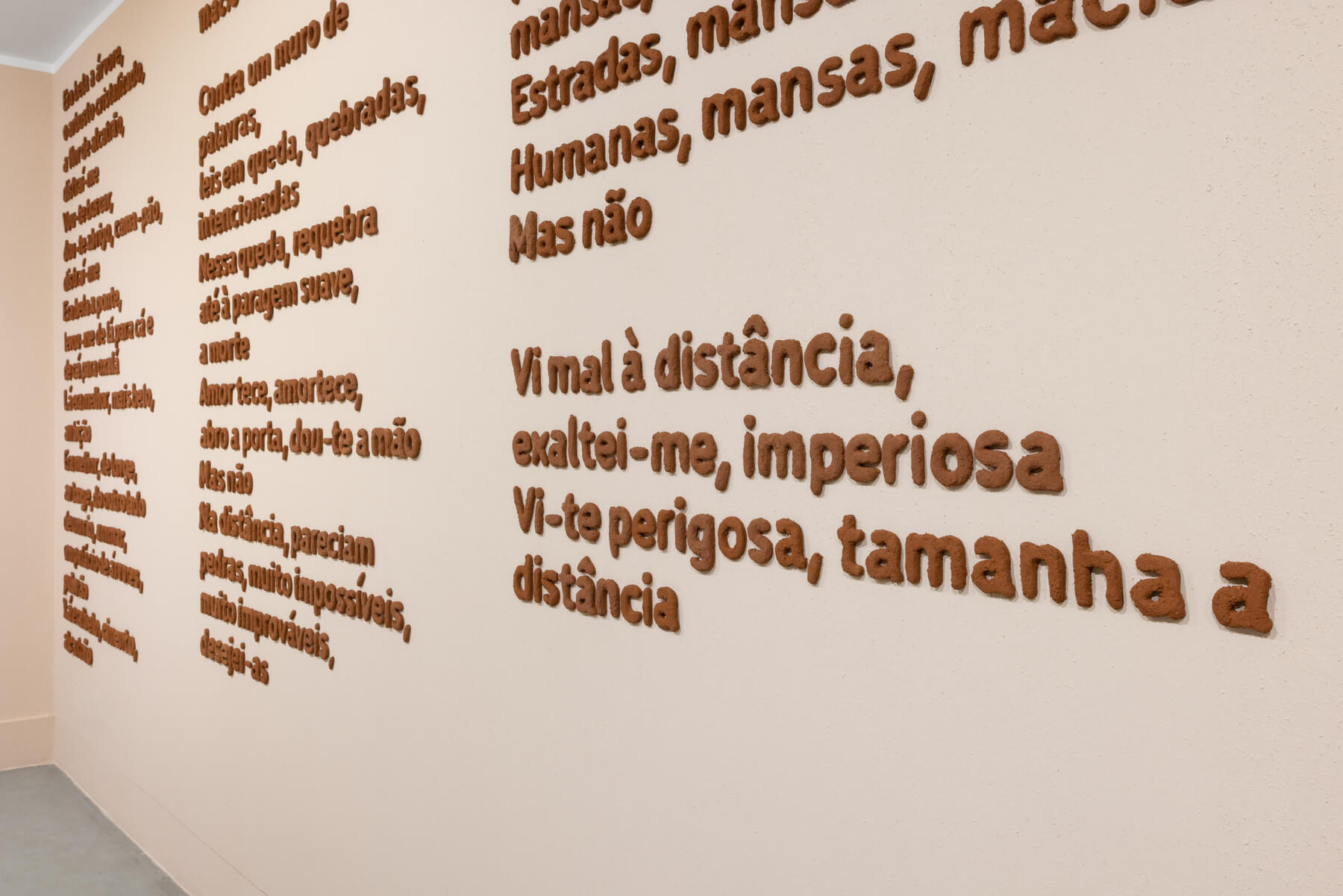– 28.05.2023
10am- 1pm and 2pm- 6pm
Performance Colectivo Ayllu: 7pm
Performance Raquel Lima: 7.30pm
The Municipal Galleries open next Friday, 24.02, at Galeria da Boavista, the exhibition Emancipation of the Living, curated by Museum for the Displaced.
Emancipation of the Living is Mf D’s first exposition. A collaboration between the Municipal Galleries of Lisbon and Almada, the project simultaneously occupies two spaces, one in each of the two neighbouring and deeply interconnected cities that have witnessed immense movement and change, including rapid gentrification, in the last decade. The presented works provide different entry points into complex topics related to displacement. In Lisbon, works by Colectivo Ayllu, Raquel Lima, Alfredo Jaar, and Frame Colectivo focus on Europe as a colonising territory, while in Almada, works by Frame Colectivo, Dima Mabsout, ETC, and Filipa César think through issues of land, dispossession, and housing rights. The exhibition emphasises the importance of collectivity, collaborative practices, and autonomy as the only path to sustainable futures. Mf D aims at growing a living archive that allows for new kinds of relationships to emerge, not only with each other, but also with our own imagination of what is possible.
The opening at Galeria da Boavista includes two performances, by Colectivo Ayllu and Raquel Lima.
The Museum for the Displaced understands displacement in an expansive way—something that can happen to humans as well as non-humans. Displacement can be a physical, mental, and/or emotional state. Displacement is often linked to traumatising experiences such as forced migration that need time to be deconstructed and healed. It happens through many forms of violence be it physical or economic; being a first-generation child; or simply existing between different cultures, languages, and customs. Displacement is being evicted for not being able to pay high urban rents, or because certain real estate companies desire the land we’ve built our house on. Displacement is to lose connection to the earth under one’s feet. Displacement is having been uprooted and not finding home again. Displacement is having to invent a new home out of fragments.
The paralel programme of the exhibition includes three workshops and one roundtable.
Galeria da Boavista:
25.03 – Experimental Pedagogies Workshop: White Blindspot by Frame Colectivo and Maribel Mendes Sobreira
6.05 – Experimental Pedagogies Workshop:: Rebel Islands – Zapatista Autonomy (part 1/2) by Lorena Tabares Salamanca
Rebel Islands is an experimental workshop about collective poetics, social movements, and alternative models of organisation. Can we challenge our desire for competition and rivalry? The invitation is to build together common goals through the game Zapatista Autonomy. We invite you to participate in these rebellious archipelagos made up of multiple characters among cards, Zapatista figures, snails, and various pairs of dice. In this board game utopia, it is possible to build autonomous societies based on mutual agreements on economy, education, government, and health, as well as models based on new social principles. The characteristic poetics of the Zapatista movement as well as its seven principles of self-government are a reflection of the permanent defence of existing ecologies of life, between political representation and the balanced distribution of resources according to the needs of each geography. Since 1994, this anti-capitalist movement has woven, through community and cooperative bonds, a resistance that seeks to motivate transformations in the conditions of imbalance and civilisational crisis on the planet.
Galeria Municipal de Almada:
28.04 – Open Roundtable : Housing Rights
As part of the exhibition Emancipation of the Living at Galeria Municipal de Arte de Almada, studio Frame Colectivo created the installation pro-sedimento, which brings to light the recent evictions in the 2º Torrão neighbourhood, Trafaria, in collaboration with the Residents’ Assembly in Resistance of 2º Torrão; Canto do Curió, Cultural Association; and the Residents’ Commission of the 2º Torrão, among other associations and individuals. Moderated by journalist Paula Cardoso (founder, Afrolink), this open roundtable counts with the participation of these and other organisations and groups to continue the dialogue on housing policies.
20.05 – Experimental Pedagogies Workshop: Rebel Islands – Zapatista Autonomy (part 2/2) by Lorena Tabares Salamanca
Biographies:
Alfredo Jaar is an artist, architect, and filmmaker who lives and works in New York. His work has been shown extensively around the world. He has participated in the Biennales of Venice (1986, 2007, 2009, 2013), São Paulo (1987, 1989, 2010, 2021) as well as Documenta in Kassel (1987, 2002). Important individual exhibitions include The New Museum of Contemporary Art, New York (1992); Whitechapel, London (1992); Moderna Museet, Stockholm (1994); The Museum of Contemporary Art, Chicago (1995) and The Museum of Contemporary Art, Rome (2005). Major recent surveys of his work have taken place at Musée des Beaux Arts, Lausanne (2007); Hangar Bicocca, Milan (2008); Alte Nationalgalerie, Berlinische Galerie and Neue Gesellschaft fur bildende Kunst e.V., Berlin (2012); Rencontres d’Arles (2013); KIASMA, Helsinki (2014); Yorkshire Sculpture Park, UK (2017) and SESC Pompeia, São Paulo (2021).
Colectivo Ayllu is a Latin American collaborative research and action group based in Madrid that identifies its members as transgressive migrants, who are racialized, sexual and gender dissidents from Spain’s ex-colonies. Through their practice that involves political activism and language, they revise socioeconomic structures, resisting heteronormativity and colonial-patriarchal systems, while promoting Indigenous ways of thinking and being, where the human is part of a nature that deserves all our care and respect. The group is formed by Alex Aguirre Sánchez (Quito, Ecuador), Leticia/Kimy Rojas (Guayaquil, Ecuador), Francisco Godoy Vega (Santiago, Chile), Lucrecia Masson (Ombucta, Argentina), and Yos Piña Narváez (Caracas, Venezuela).
Dima Mabsout is an artist whose creative practice traverses educational, social, and political realms. She is interested in how the arts can bridge between experiences, disciplines, and across social structures. In 2014, she created the Naked Wagon, a mobile platform that creates context for art and exchange on the streets, whose journey contributed to symposia, lectures, and collaborations with artists and organisations in Lebanon, London, and Scotland. Mabsout began working with Catalytic Action shortly after, as the art and education programmes director, developing methods in group participation that explore relationships between art and built environments. Today, she is working at a forest school in Lebanon and actively exploring collective art making, theatre, and street performances. She holds a BA in Fine Arts from Central Saint Martins, London, and an MA in Arts in Education from Harvard Graduate School of Education.
ETC is a multidisciplinary studio for research and project development on territories in crisis, founded in 2010 by Simon Deprez and Eléonore Labattut. The pair works in collaboration with an interdisciplinary network of experts and researchers from different fields (including architecture, urbanism, geography, sociology and anthropology). To support inclusion, ownership and citizenship, they design and implement participatory processes for use in the analysis, design, implementation or evaluation phases of development projects. ETC has been based in Lisbon since 2014.
Filipa César is a Portuguese artist and filmmaker, whose work engages with the fictional aspects of documentary film and the fluid boundaries between film and its reception. She is particularly interested in militant cinema and the political dimension of the moving image and the technologies used. In numerous workshops and seminars, she has already worked with students at universities in Europe and the USA, including Harvard University. She co-founded the Mediateca Onshore, an archival project and a place of learning with ancestors, nature and people in Guinea Bissau. Together with Diana McCarty, Filipa César has been appointed to a professorship of Film and Video at Merz Akademie. In their artistic work, the duo has focused particularly on interdisciplinary projects with a feminist-critical approach.
Frame Colectivo is a Lisbon-based architecture studio founded by Gabriela Salhe and Agapi Dimitriadou in 2012. Their urban research and practice includes installations, activations, exhibition design, scenography, multimedia works, and publications, merging inventive experimentation with space theory. They have developed research focused on public and semi-public open spaces, defining a critical stance on the built environment, and conceptualising and implementing projects that are situated, formally disruptive, and socially engaged, while developing tools for public participation in place-building and decision-making processes. Under the alias Urban Editions, they publish books and games that result from and accompany the work, gathering people around social and environmental concerns in architecture and urbanism. In 2019, they published [TASCAS], where thirty authors pay tribute to the tasca, a popular and affordable restaurant typology in Portugal.
Raquel Lima is a poet, performer, and art-educator. She is currently a PhD Candidate in Post-colonialisms and Global Citizenship from the Centre for Social Studies at Coimbra University with a FCT Scholarship. Her research interests focus on Orature, Slavery and afrodiasporic movements. She has been collaborating with the project ALICE – South Epistemologies of CES since 2016. She holds a BA in Artistic Studies – Performative Arts from the School of Arts and Humanities of the University of Lisbon (2008). She made two international internships, firstly in Rio de Janeiro, Brazil (2009) with a grant INOV-ART from DGArtes/Ministry of Culture and secondly in Paris, France (2010) with a Leonardo Da Vinci’s grant. She published her poetry in several languages as a spoken word performance artist and has been organising poetry workshops, such as “Poetry, Race and Gender: for an intersectional poetic writing”. She is member of the advisory board of the research project “(DE)OTHERING – Deconstructing Risk and Otherness: hegemonic scripts and counter-narratives on migrants/refugees and ‘internal Others’ in Portuguese and European mediascapes” (2020-2021) at CES. In 2019 she co-coordinated the 7th Afroeuropeans Conference “Black In/Visibilities Contested” and published her poetry book Ingenuidade Inocência Ignorância (BOCA and Animal Sentimental).
Lorena Tabares Salamanca is an independent researcher and curator, who focuses on contemporary art, archives, and performance. She is a graduate student at the MA in Communication Sciences and Arts at Nova University, Lisbon, and the founder of the cultural association Circuloscópio. In the last years she has focused on the intersections between fictions, performance art, and its documentation. She was co-editor of Cuerpo Pólvora, issue no.15 of Terremoto magazine. She carried out the research and implementation of the educational programme “Mesas de diálogo: Performance en revisión 1990-2019. Memoria y archivo desde el arte acción, la performance y la documentación en México” coordinated by Local 21 arte. In 2018, she worked on the conceptualisation of the archive of Antonio Juárez Caudillo, stored in Arkheia at the Museo Universitario de Arte Contemporáneo – MUAC. In 2017, she was part of the Ex Teresa Arte Actual team for the “Stabilization, description and digitalization of audiovisual and photographic documents in analog formats of the Ex Teresa Fund (1993-2000)”. Salamanca is based in Lisbon, Portugal.
Maribel Mendes Sobreira is an architect, curator, and researcher, a PhD student in Philosophy at the School of Arts and Humanities (Faculdade de Letras) of the University of Lisbon (FLUL) in Aesthetics and Philosophy of Art, and she was an FCT (Foundation for Science and Technology) grant holder from 2016 to 2020. She holds a Master’s degree in Philosophy from FLUL, she is also a PhD student in Philosophy at FLUL in the field of Aesthetics and Philosophy of Art, and was an FCT scholarship holder from 2016 to 2020. Sobreira is a member of the Philosophy Centre of the University of Lisbon (CFUL) and of ISPA (International Society for the Philosophy of Architecture). Collaborating with Museu Coleção Berardo and MAAT, she designs and runs activities to raise awareness of the arts and architecture. She started her curatorial practice in 2019, with the project ARQUIVO EXQUIS, in Lisbon, and she co-founded ColectivoFACA – a curatorship and active citizenship project that questions the narratives of visual culture, not erasing history and intersecting the various narratives.
The Museum for the Displaced (Mf D), founded in 2019, collaborates with artists and researchers who are displaced or working within the topic of displacement through commissions, exhibitions, events, and publications. Mf D’s mission is to make space for a multitude of such stories, contextualise these narratives, and weave a larger picture. Through this live archive, Mf D aims at raising awareness and igniting conversations about displacement in as many places as possible, joining broader movements towards more equality, freedom, and social and environmental justice. Propelled by Mohammad Golabi (Iran/USA), Leong Min Yu Samantha (Singapore), and Ana Sophie Salazar (Ecuador/Portugal).
– 28.05.2023
10am- 1pm and 2pm- 6pm
Performance Colectivo Ayllu: 7pm
Performance Raquel Lima: 7.30pm

